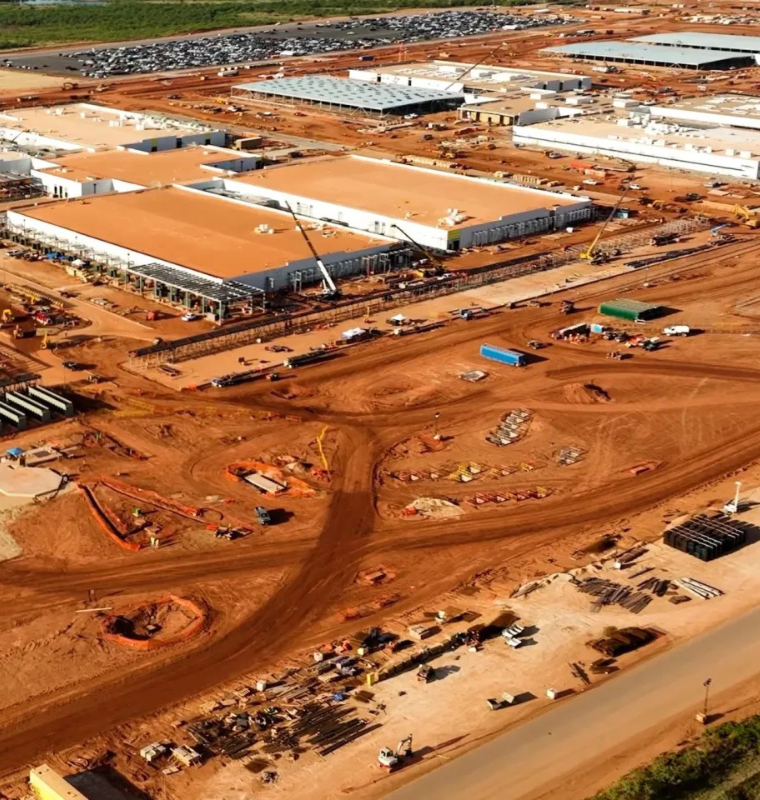Xiaomi Sets Sights on Europe with 2027 EV Launch and Showroom Network
Xiaomi Sets Sights on Europe with 2027 EV Launch and Showroom Network
By
David Goldfarb
Last updated:
September 25, 2025
First Published:
September 25, 2025

Photo: CnEVPost
Xiaomi, best known globally for its smartphones and consumer electronics, is preparing a bold entry into Europe’s electric vehicle (EV) market. The Chinese tech group confirmed that it will launch its first EVs in Europe by 2027, supported by a dedicated showroom network to showcase its vehicles to consumers across key markets.
Xu Fei, vice president at Xiaomi, told CNBC that while the company’s initial rollout will not involve building a new car specifically for Europe, its vehicles will be adapted to meet the continent’s regulatory standards and customer expectations. The executive also hinted at plans to eventually establish local manufacturing operations, a move that could strengthen Xiaomi’s competitiveness against entrenched players like Volkswagen, BMW, and Tesla, as well as emerging Chinese rivals BYD and Nio.
Xiaomi’s EV Ambitions
The EV venture is a central pillar of Xiaomi’s diversification strategy. The company has pledged over $10 billion to its electric vehicle division, aiming to position itself as a serious contender in the global auto industry. Its first production car, the SU7 sedan, was unveiled in China earlier this year and has been compared by analysts to Tesla’s Model 3 in both design and price point. Early reports suggest Xiaomi received more than 50,000 pre-orders within weeks of its domestic launch, underscoring strong consumer interest.
By 2027, Xiaomi plans to leverage this momentum by tapping into the European EV market, which saw sales surpass 3.2 million units in 2024, accounting for nearly 24% of new car registrations. Countries such as Germany, France, and the UK remain priority targets, given their strong EV adoption rates and robust charging infrastructure.
Why Europe Matters
Europe is viewed as a critical test market for Chinese EV makers seeking international credibility. While Xiaomi enjoys a strong brand presence in Europe through its smartphone business, breaking into the automotive sector will require overcoming significant challenges. Regulatory hurdles, consumer trust, and brand positioning will all play a role. Establishing showrooms is seen as a crucial step, enabling Xiaomi to control the customer experience and highlight the integration between its cars and broader ecosystem of connected devices.
Xu Fei emphasized that local manufacturing could follow at a later stage, depending on market reception. Such a move would not only reduce tariffs and logistics costs but also align with the EU’s push for localized green technology production.
Competition Heats Up
Xiaomi’s entry comes at a time of intensifying competition. European automakers are accelerating EV rollouts to comply with the EU’s 2035 ban on new combustion engine car sales, while Chinese brands are aggressively expanding overseas. BYD recently announced a $1 billion investment in a Hungarian factory, signaling how rivals are moving swiftly to secure their European foothold.
For Xiaomi, success will hinge on its ability to differentiate its EVs through pricing, technology integration, and brand strength. Analysts believe that Xiaomi could appeal to younger consumers who already use its smartphones and smart-home products, potentially creating a unique ecosystem advantage that competitors lack.
The Road Ahead
Xiaomi’s 2027 timeline gives the company three years to refine its European strategy, build showroom networks, and address regulatory requirements. If successful, it could not only boost Xiaomi’s global revenues but also reshape the competitive dynamics of Europe’s EV landscape.
As Xu Fei noted, the plan is not to reinvent the wheel but to bring an already tested product into a high-growth market—and, over time, establish Europe as a second home for Xiaomi’s automotive ambitions.
Popular articles
Subscribe to unlock premium content
Why Consumers Buy Limited-Edition Fashion and Beauty Products

How K-Beauty Changed the Global Skincare Industry and Consumer Expectations

How Streetwear Became a Billion-Dollar Industry From Niche to Mainstream

Why Consumers Buy Limited-Edition Fashion and Beauty Products

How K-Beauty Changed the Global Skincare Industry and Consumer Expectations

Why Consumers Buy Limited-Edition Fashion and Beauty Products









